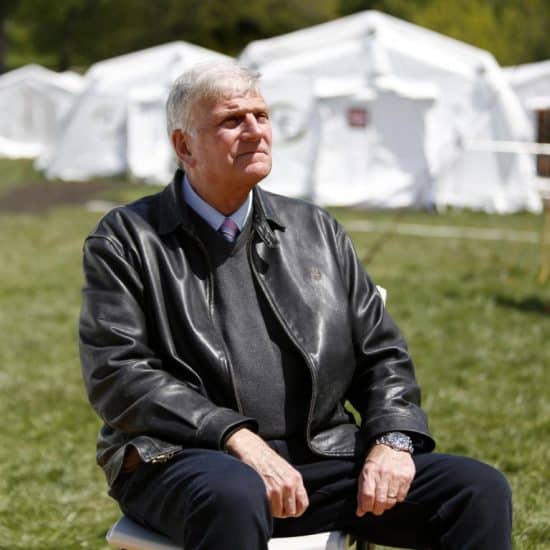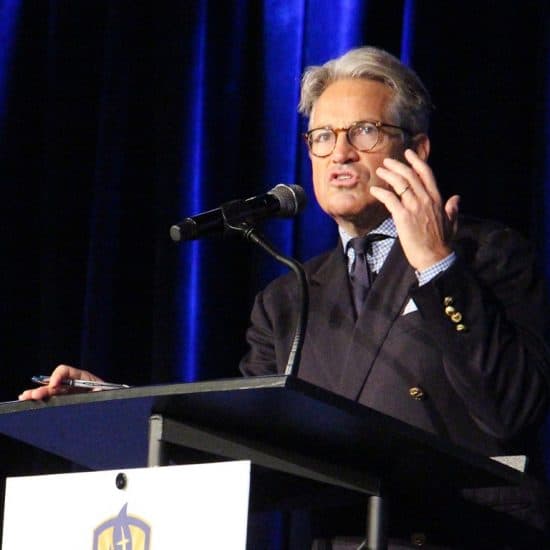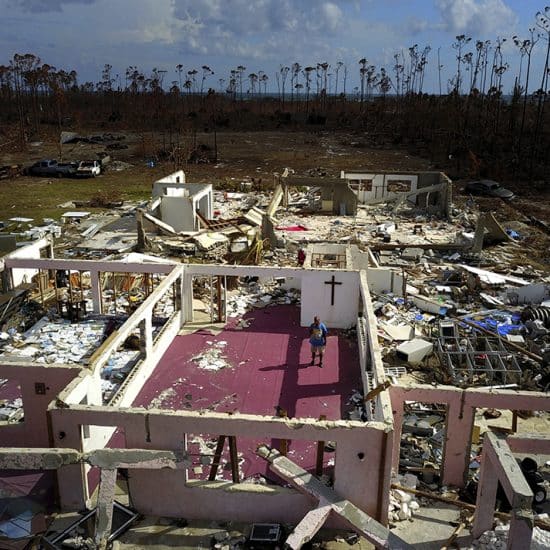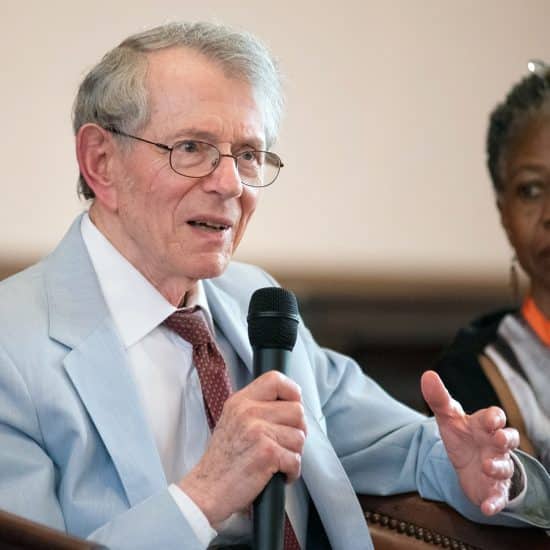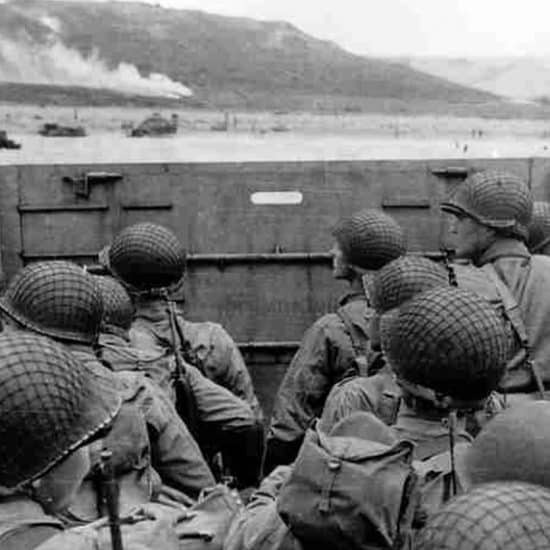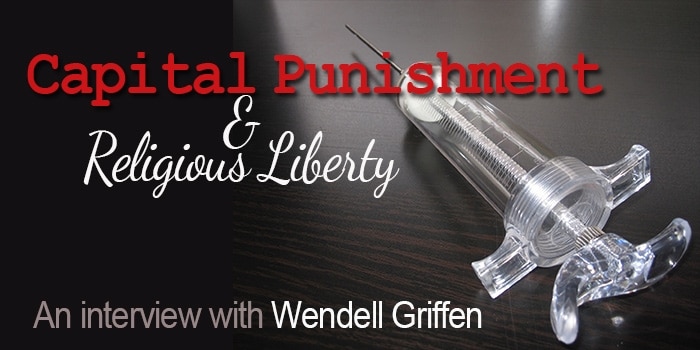
Wendell Griffen recently made international headlines as some state politicians seek to remove him from the bench. Griffen serves as pastor of New Millennium Church (a Cooperative Baptist Fellowship congregation in Little Rock, Ark.) and as a Pulaski County circuit judge. He also recently wrote a book on faith and public policy: “The Fierce Urgency of Prophetic Hope.” Word&Way Editor Brian Kaylor interviewed Griffen in May.
Your new book, “The Fierce Urgency of Prophetic Hope,” offers a response to the election of President Donald Trump. What do you hope Christians will hear and do at this time?
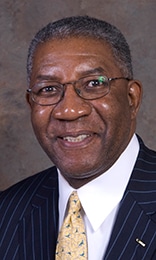 Wendell GriffenI hope that we will embrace what I call “prophetic citizenship,” as I mentioned in the conclusion of the book. That we have to practice prophetic citizenship means challenging politicians and our government officials to focus — when it comes to issues of public policy and issues of justice — on the things that God cares most about. And particularly to look at public policy from a bottom-up — as opposed to a top-down — perspective. To look at public policy from the perspective of the lives of those that Jesus called the least among us, as opposed to those that Senator Bernie Sanders has identified as “the one percent” and as opposed to those who most other politicians call “the middle class.” As I understand prophetic citizenship and the Gospel of Jesus — particularly the injunction of Jesus in Matthew 25 — Jesus and justice are concerned about “the least of these.” And if we provide justice for “the least of these,” the rest of the people in our society will be well-served.
Wendell GriffenI hope that we will embrace what I call “prophetic citizenship,” as I mentioned in the conclusion of the book. That we have to practice prophetic citizenship means challenging politicians and our government officials to focus — when it comes to issues of public policy and issues of justice — on the things that God cares most about. And particularly to look at public policy from a bottom-up — as opposed to a top-down — perspective. To look at public policy from the perspective of the lives of those that Jesus called the least among us, as opposed to those that Senator Bernie Sanders has identified as “the one percent” and as opposed to those who most other politicians call “the middle class.” As I understand prophetic citizenship and the Gospel of Jesus — particularly the injunction of Jesus in Matthew 25 — Jesus and justice are concerned about “the least of these.” And if we provide justice for “the least of these,” the rest of the people in our society will be well-served.
I think that the prophetic lens on the Gospel of Jesus and the justice and love ethic of God is that we focus on justice as defined by those who are marginalized, those who are weak, those who are vulnerable as opposed to those who are powerful, those who are comfortable, and those who are privileged.
I started reading your book on Good Friday. I read quite a bit that day, finding it inspiring and challenging. As I chewed on some of your words that evening, I saw your name in the news. As a judge, you issued a temporary restraining order blocking the use of a drug used in the lethal injection protocol in Arkansas. As a pastor, you participated in a prayer vigil that day to protest the executions. How do you balance your roles as judge and pastor?
The issue that I had to deal with [as a judge] simply was whether or not — under the sworn complaint and exhibits that I received — the distributer [of the drug] had made a colorable [or plausible] showing it was the rightful owner of the property and that its property was in imminent danger of being forever disposed of or destroyed unless I entered a temporary restraining order. The two prongs of that are: does the person have a claim that is at imminent risk of being lost, and is the person likely to succeed on the merits of their claim? I decided — based on what the medical distributer presented — that they had met both prongs of the Arkansas test under Arkansas property law, and I issued a temporary restraining order that the Arkansas officials preserve the product until I could have a full hearing with all parties present to resolve the question presented by the lawsuit.
I then went on to the prayer vigil. Our congregation had planned for some time to have a prayer vigil for Good Friday in front of the Governor’s Mansion because Jesus was crucified, or was condemned to death, by the Roman Governor Pontius Pilate. And we thought it would be solidarity with Jesus to have our prayer vigil in front of the Arkansas Governor’s Mansion.
Of course, there were anti-death penalty protesters in front of the Governor’s Mansion also. We did not interfere with them, they did not interfere with us. Our congregants invited them to join in the singing of the hymns that we sang — “Amazing Grace” and “This Little Light of Mine.”
Neither my ruling of the TRO nor my prayer vigil action involved any test of my allegiance to the law of Arkansas or the Gospel of Jesus. The Gospel of Jesus was not at issue in the temporary restraining order ruling. That was an issue of Arkansas property and contracts law. The law of Arkansas was not at issue in the Good Friday prayer vigil. That was an issue of my religious exercise as a follower of Jesus. So, there really wasn’t a balancing test at all.
After several rulings by other judges stopping four planned executions, Arkansas still carried out four others in the two weeks following Easter. As a pastor, why do you find capital punishment problematic?
As a pastor, as a follower of Jesus, I find capital punishment morally unjustifiable. I didn’t say legally unjustifiable. I understand that the legal justification of it is a function of whether or not a political entity has the power to take life. That does not answer the moral issue at all. I find capital punishment morally unjustifiable for a couple of reasons.
First of all, it makes no moral sense to condemn the cold-blooded killing of another person and to say that it is somehow morally justified to demonstrate that condemnation by cold-bloodedly killing the cold-blooded killer. Capital punishment is a cold-blooded killing of someone who has killed in cold blood. It is not self-defense by any means because in order for us to do capital punishment, we have to take somebody out of a place where they are locked up and a threat to no one. We take them into a room where they are threatening no one. Bind them where they can threaten no one nor defend themselves. And then kill them. That by any stretch of one’s reasoning is cold-blooded killing and is the definition of what we call “first-degree” or “capital murder.” Logically, that is nonsense.
Beyond that, none of us believes that it makes for justice to punish robbery by allowing the victims of robbery to steal from thieves, let alone to employ state agents to do the stealing. None of us allows that it is just to allow the victims of arson to torch the homes of arsonists, let alone to hire or designate state agents to go about doing so. None of us would be so crass as to suggest that is moral to punish child molesters by having state agents molest the children of people who molest children. And, so, how is it that we somehow believe that justice can only be served if we allow state agents to kill people because those people have killed other people? This is the only situation in our law where we basically legitimate bloodlust and designate state agents to act in the name of bloodlust and call that justice.
We have another name for it in morality; it’s called vengeance. And according to scripture, vengeance does not belong to any of us. Only God has the right to enact vengeance. “‘Vengeance is mine,’ says the Lord, ‘I will repay.’” And somewhere in the Top Ten there’s a word that says, “You shall have no other gods besides me.” Which means none of us have the right to claim the prerogatives of God. What we do in capital punishment is claim a right that is reserved — plainly in scripture — to God alone.
That’s morally unjustified. And I think as followers of Jesus, we do ourselves and the religion of Jesus an extreme disservice when we gloss over these very serious theological problems.
Now, as if that were not bad enough, our tendency to favor to capital punishment has another problem. We can’t ignore some very notable examples in scripture where God does not sanction capital punishment. The first murder was committed by Cain, according to scripture. And Cain was not put to death by God. Neither is Cain allowed to be marked for death. Rather, Cain is marked so that Cain will not be targeted for death. And the mark is a divine mark, a divine mark of protection. Cain committed murder. Cain committed murder against his brother. There is no reason to believe that Cain committed murder in self-defense. And, so, we do a very strong disservice to our professed allegiance to the text when we look over the first murder. Read the account of the first murder. See that the blood of Abel cries out to God and that God refuses to then condemn Cain to death for that, but shows him that his punishment is a life as a marked man for having murdered his brother.
There was a cat in the Bible called Moses who killed a law enforcement officer, a soldier. By our standards, that’s the worst kind of killing. God uses Moses to be a liberator. God knows Moses’s history. Moses’s history is recounted in the text. Nowhere do we find in the text any suggestion that God licensed the homicide Moses committed. And nowhere do we find in the text that God somehow treats Moses as death-eligible because of the murder.
David sends Uriah — one of his soldiers — to the front line with specific instructions for him to be abandoned on the battlefield so he can be killed. And, therefore, David is guilty of the most cold-blooded kind of murder on top of adultery. And we read these accounts. We study these accounts. And we gloss over these accounts in advocating capital punishment to our own disservice as followers of Jesus. I don’t think we can do that.
Finally, I think it is more than slightly interesting that Jesus at his crucifixion opted not to come down from the cross, despite being taunted to do so and despite all the indications that while he opted not to do so he could have done so. But he opted — albeit innocent — to stay alongside condemned men who were put to death by the state, thereby putting the love and justice of God alongside the condemned and not alongside the state executioners. I think we have to look at these kinds of examples with a whole lot of humility and consider our need to repent from our tendency to — as St. Paul said — be conformed to this world rather than being transformed by the renewing of our minds by the Gospel and the love ethic of Jesus.
Some Arkansas politicians want you impeached and removed from the bench because of your participation in the Good Friday prayer vigil. You’ve responded, in part, by noting your religious liberty rights as a pastor and follower of Jesus. Could you explain that?
The religious liberty aspects of my Good Friday prayer vigil actions are self-evident. Good Friday is one of what we would call the “high holy days” in the religion of Jesus. It is the Friday of what we call “Holy Week” beginning with Palm Sunday and culminating with Holy Saturday and the Resurrection Sunday or Easter. Prayer is — and has long been recognized as — a discipline of the religion of Jesus. And I am a pastor in the Baptist tradition.
The question is: What part of the First Amendment do my detractors not understand? What part of religion is not involved in prayer? What part of the religion of Jesus is not implicated by Good Friday? What part of the religion of Jesus is not implicated by a prayer vigil in front of the Governor’s Mansion? And given that my detractors profess to be such strong adherents to the notion of religious liberty, what part of the Arkansas Religious Freedom Restoration Act am I not covered by? The Arkansas Religious Freedom Restoration Act — like Religious Freedom Restoration Acts nationally — provides that religious freedom is of utmost First Amendment importance and must be protected.
Some of the people who claim to be asking for my impeachment profess to be followers of Jesus. Some of them profess to Baptists. Senator Trent Garner, the person who shouted loudest for my impeachment, is a Baptist. And, so, the question is: What part of the Religious Freedom Restoration Act does he find objectionable? And what part of prayer does he find nonreligious? And what part of Good Friday does he find inappropriate or disgraceful to the religion of Jesus?
If he’s mad about the temporary restraining order, the ground for that is not impeachment, but appeal in the courts. If he’s mad because I’m praying, the ground for that is not impeachment, but to object to my church. But he can’t say I don’t have the right to practice my faith. And he can’t say if I profess my faith I don’t have the right to be a judge — unless he is not going to follow the oath he swore when he took his office, which was to uphold and support the Constitution of the United States, which includes, since 1791, the First Amendment.
The tradition of Baptists is that we respect and protect the exercise of religious expression. Not that we condemn and penalize the exercise of religious expression.
In your book, you talk about the importance of connecting our commitment to religious liberty to biblical teachings on social justice, equality and love of neighbor. Could you briefly explain that?
Unless we understand that God is caught up — wholly caught up, is obsessed — with this notion of love and justice, we will read our theology as a theology of privilege as opposed to a theology of liberation. And we will miss the fact that throughout the cannon, the Divine is presented as being not just concerned about the oppressed people but, as we see in Exodus, identifies with the oppressed people, comes alongside the oppressed people.
Religious liberty is about more than merely the right to proselytize or to practice my ritual; it is about my right to be free to live as God intends me. And it’s part of the whole moral and justice and liberation ethic of God. And whenever we compartmentalize religious liberty so that religious liberty is seen as something less than part of the deep and wide obsession of God about liberation, we do a disservice to the whole notion of what God is about in salvation because in salvation God is on a mission to liberate humanity and the creation and anything that is oppressed in whatever form it is oppressed — to include religious oppression.
What we have to do as followers of Jesus is to read the text in that sense. What we haven’t done, then, by not reading the text in that sense, is understand the relationship between religious liberty and the ‘love thy neighbor as thyself’ ethic in scripture. If I don’t understand the religion of Jesus as part of the entire cannon that talks about God’s obsession with liberation of humanity and the creation from all forms of oppression, then I will not understand that religious liberty cannot be thought of unless we think about the great commandment: you shall love God with your whole person and — not two commandments, but one — your neighbor as yourself. If we do not love God and our neighbor as ourselves, if we do not practice equality toward our neighbor and protect our neighbor from oppression in whatever form it presents itself, then our exercise of religious liberty boils down to simply religious chauvinism.
Note: Griffen urges those wishing to purchase his book “The Fierce Urgency of Prophetic Hope” to buy it online from an independent bookseller in Arkansas: pyramidbks.net. He added that if someone requests a signed copy when purchasing from Pyramid, he will autograph it before it is shipped.

